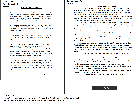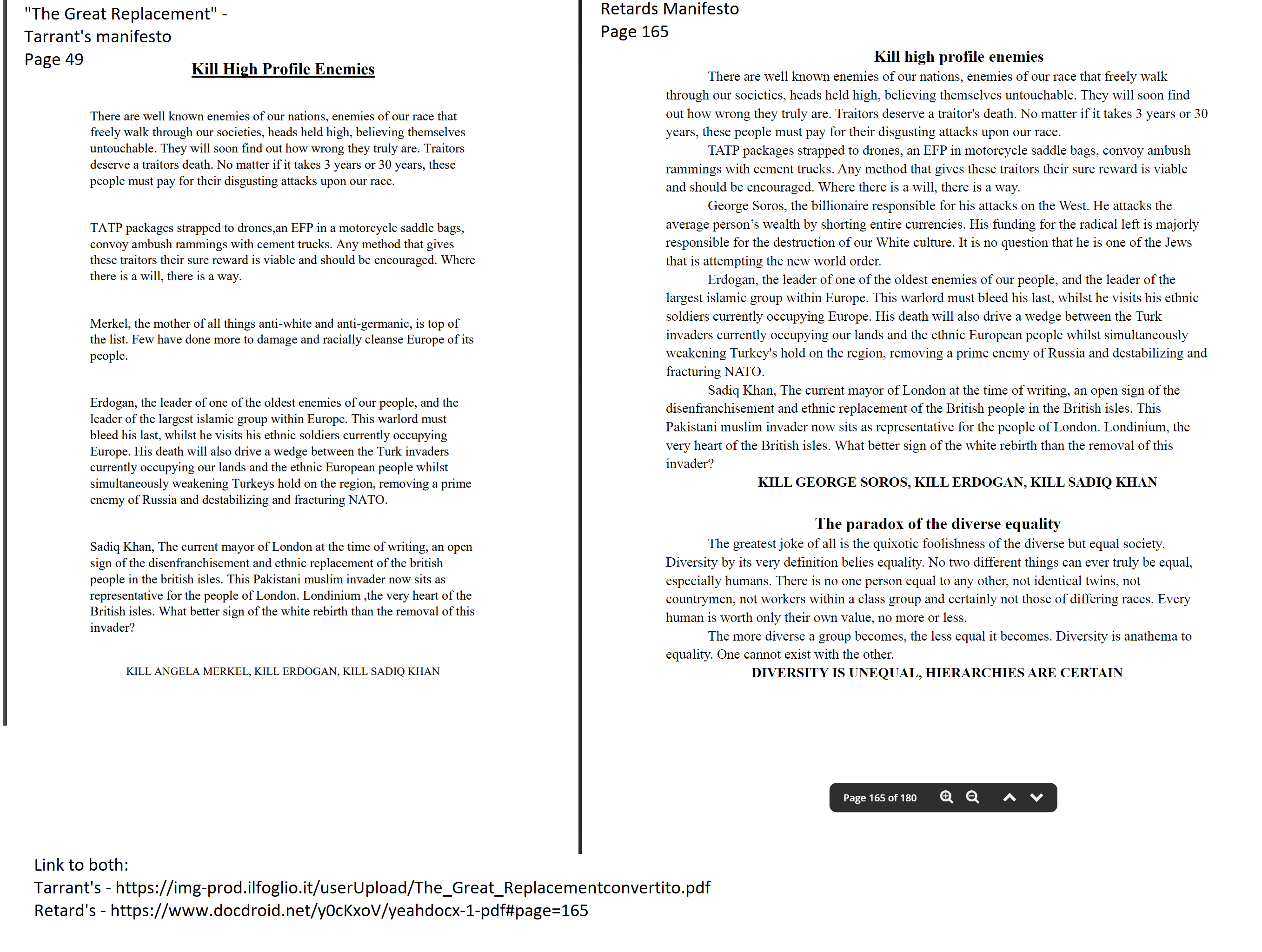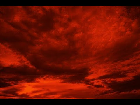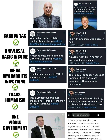*Quoted from "Not Even Trying: The corruption of real science" by Bruce Charlton
My belief is that science has rotted from the head down – from the top to the bottom - and therefore blame mostly lies with senior ‘scientists’. The careerism of senior ‘scientists’, and their abandonment of the Iron Law of truthfulness, has been the main cause of the now pervasive corruption of science (not least because the senior appoint the junior, the bosses choose the minions). So the roots of dishonesty in science constitute a ‘treason of the clerks’ phenomenon.
While the ultimate cause of the treason has been the abandonment of truth conceived as a transcendental value – as I argue below – the proximate mechanism by which corruption has been implemented was peer review. Since the middle twentieth century there has been massive expansion in the size and influence of peer review, peer review infiltrated into all the major scientific evaluations – peer review has become the self-perceived core process of science. Yet peer review is no more, no less, than the opinion of senior scientists. And not individual judgment, but a procedure for gathering opinions of a group, followed by some kind of more-or-less formal, more-or-less explicit procedure for deriving a single decision from the group of opinions: by vote, by veto, by some kind of weighted quantification, by an impressionistic judgment of the decision, or whatever.
In practice, most peer review is a ‘black box’ mechanism – and all the more effective for its unknown operations. A question is fed-into the black box of peer review, some senior scientists deliberate in some way and some answer emerges – an answer that is impossible to critique yet regarded as authoritative (as if a committee of senior scientists constituted a kind of super-multi-brain with magically-combined wisdom and expertise!)
The essence of peer review is therefore the ‘peers’ – which implicitly means a plurality of senior figures from (broadly) the same domain or field of research endeavour; and the ‘review’ element which in some way derives a bimodal or categorical evaluation from the plurality of opinions.
To put it another way, the triumph of peer review is a triumph of the committee over the individual, of procedure over judgment, of the selective and explicit over the unbounded and implicit. The even-more-significant aspect of peer review is the rhetorical success of implying that a committee procedure is more objective and more valid than individual judgment; the almost-wholly successful trick of disguising that peer review is pure opinion, and therefore just as ‘unreliable’ and prone to corruption as individual judgment – but that in fact peer review is worse than individual judgment for the same reason that a committee decision is intrinsically worse than an individual decision: because the committee decision is removed from individual responsibility, hence removed from responsibility altogether.
(Responsibility is an attribute of individual authority. Without I.A. there is no responsibility – merely a legal contract.)
Yet peer review is neither necessary nor sufficient as a definition of science, it is orthogonal to science; and therefore domination by peer review marks the disappearance of ‘real science’ and the inclusion of its activities within the system of large, complex trans-national bureaucracies.
So peer review does not solve the problem of subjectivity; rather it replaces potentially responsible individual subjectivity with necessarily irresponsible group subjectivity. Thus the advantage of peer review is precisely the opposite of its propaganda – peer review has become universal because it is irresponsible, not despite this. For peer review; irresponsibility is a feature, not a bug.
Overall, senior scientists have set a bad example of untruthfulness, self-seeking and lack of principle in their own behaviour, and (surely not unrelated) they have also tended to administer science in such a way as to reward hype and careful-dishonesty, and punish modesty and strict truth-telling. Some senior scientists have laudably refused to compromise their honesty, however they have done this largely by quietly ‘opting-out’, and not much by using their power and influence to create and advertise alternative processes and systems in which honest scientists might work. They have not exposed the pervasive and mandatory dishonesty of modern ‘science. Presumably they began by not wanting to discredit what real science still remained, but ended by colluding in the disguise of the non-scientific nature of pseudo-scientific professional research.
But, to be fair to the honest real scientists, those that did speak out loudly and clearly – such as Erwin Chargaff - were first marginalized, then ridiculed, then completely ignored and forgotten – as being embittered failures, motivated by ‘sour grapes’ and envy...
Peer review - of ever greater complexity, hence irresponsibility - has now been applied everywhere: to academic education and research training, job appointments and promotions, to scientific publications and conferences, to ethical review, to research funding, to the allocation of medals, prizes and awards. And peer review processes are set-up and manned by senior scientists. In a sense, peer review (where it matters, where it makes a difference to policy and practice) simply is monopolization of all evaluation, reward or punishment processes by senior scientists; yet not as autonomous individuals but as components of a process which nobody-in-particular controls. This seems something like the worst of all possible worlds; most of the actual disadvantages of tyranny but without any of the potential advantages of having ‘somebody’ in control.
EDIT:Correction - it's every single post and comment they make
Check it out for yourselves. I can't post a screen shot because I'm too lazy to figure out how to get a shot that includes the mouse-hover text.
I think it's very unlikely to be 12 separate users who always dislike u/Corporis 's posts at around about the same time, lol. So it's bots or alts I guess, unless 12 different users want to weigh in and tell me I'm wrong. The most downvotes other users generally have in hot is 2-3. What do users think about this?
If this post turns nasty I'll be deleting it, just so you know.
EDIT: so as expected, it happened to this post too, and the comments have been vote manipulated. Hopefully genuine users here appreciate my drawing attention to this.




Just discovered this interesting book, "Not Even Trying" (2012), which the author has made available free online as a long blog post:
https://corruption-of-science.blogspot.com/2013/07/not-even-trying-corruption-of-real.html
The argument of this book in a single paragraph
Briefly, the argument of this book is that real science is dead, and the main reason is that professional researchers are not even trying to seek the truth and speak the truth; and the reason for this is that professional ‘scientists’ no longer believe in the truth - no longer believe that there is an eternal unchanging reality beyond human wishes and organization which they have a duty to seek and proclaim to the best of their (naturally limited) abilities. Hence the vast structures of personnel and resources that constitute modern ‘science’ are not real science but instead merely a professional research bureaucracy, thus fake or pseudo-science; regulated by peer review (that is, committee opinion) rather than the search-for and service-to reality. Among the consequences are that modern publications in the research literature must be assumed to be worthless or misleading and should always be ignored. In practice, this means that nearly all ‘science’ needs to be demolished (or allowed to collapse) and real science carefully rebuilt outside the professional research structure, from the ground up, by real scientists who regard truth-seeking as an imperative and truthfulness as an iron law.
The book is also available as a proper ebook and it's on libgen if you search for the title or author.
The author, Bruce G. Charlton, who I had never heard of before, is an interesting guy. This quote from his wikipedia page:
From 2003 to 2010, Charlton was the solo-editor of the journal Medical Hypotheses, published by Elsevier. After HIV/AIDS denier Peter Duesberg published a paper in Medical Hypothesis arguing that “there is as yet no proof that HIV causes AIDS", the journal came under fire for its lack of peer review. The paper was withdrawn from the journal [by the publisher, Elsevier] citing concerns over the paper's quality and “that [it] could potentially be damaging to global public health.” Elsevier consequently revamped the journal to introduce peer review, firing Charlton from his position as editor, due to his resistance of these changes.
At October 2012, a worldwide campaign including 198 researchers published a critical paper defending Charlton and the idea of editorial review.
I include it despite it's critical tone to show he's not a criticizing outsider, but someone who spent his career as a doctor and scientific researcher. This book was written in 2012, after the journal debacle, and 25 years into his career. A quote:
looking back on 25 years in professional research – I am forced to admit that, although I certainly tried, I wasn’t actually doing science.
He says real science was "exorcised" from the scientific community/industry almost entirely around about 1940s-1950s. This is a conclusion I had also come to from my own independent research. This happens to be when viruses were first claimed to have been isolated and proven to be the source of much disease, and also around about when electron microscopes began to be used to examine biological samples.
I've yet to read much of the book, but I am excited to do so.
An aside: The publisher, Elsevier, who quashed his unconventional journal over "AIDS/HIV denial" is (Ghislaine Maxwell's father) Robert Maxwell's baby, a publishing company he built from the ground up. (EDIT: I misremembered this, Maxwell's company was Pergamon, which was acquired by Elsevier). Maxwell is credited with revolutionizing (destroying might be a better word) the Scientific Journal. He made Science Journal publishing the behemoth industry it is today. Before him papers and journals were published semi independently, in a not very profitable way and in small quantities. They were printed on "bible stock" paper and only available at conferences where the authors would actually present their work. Of course, there was absolutely no advertising. They were more like a formal and extended version of the scientist's lab notes. While it had it's limitations, it was more in line with Charlton's idea of "Real Science".
So Maxwell is one big cog in the machine that destroyed "Real Science" - he encouraged scientists to pursue the audacious, bombastic type of research that would grab headlines, sell (increasingly flashy) journals and pull in loads of investment and grants. He would go to these conferences and gather up the most appealing scientists, rent hotel rooms and provide them with hookers and booze. If you want to read more about all that, here's along article from the Guardian of all places:
Is the staggeringly profitable business of scientific publishing bad for science? - It is an industry like no other, with profit margins to rival Google – and it was created by one of Britain’s most notorious tycoons: Robert Maxwell**



As Masons progress into higher degrees, their god undergoes a basic alteration. No one can become a Freemason unless he professes to believe in one supreme being. Freemasons call him the Great Architect, who created the universe with one sweep of his compasses. Combined as he is in the early degrees with an oath to honour the precepts of the Bible, this god is the benevolent god of love, the Almighty Father. Degree by degree the personality of this godhead changes imperceptibly, until in the highest degrees the strange god of the Freemasons is revealed as Jah-Bul-On. This weird entity is a composite personality compromising Jahweh, the god of the Christians and the Jews; Osiris, the mummy-like god of the dead in Ancient Egypt; and Baal, the pagan god whom the Israelite's identified with the devil. While it is inaccurate to call advanced Freemasons devil-worshippers in a strict sense, they nevertheless accord this devil great importance in the governing of the universe, they treat him as an equal of the Christian God and they do pay him homage
[...]
Albert Pike, the great Masonic Authority of the nineteenth century and the Grand Commander of the Southern Jurisdiction of the Supreme Council at Charleston, USA, wrote in 1873 when he gained sufficient seniority to learn of Jah-Bul-On that he was disquieted and disgusted by it:
No man or body of men can make me accept as a sacred word, as a symbol of the infinite and eternal Godhead, a mongrel word, in part composed of the name of an accursed and beastly heathen god, whose name has been for more than two thousand years an appellation of the Devil.
Yet this is exactly what advanced Freemasons are made to accept, and this is the deity they worship
excerpt from "Jack The Ripper: The Final Solution" by Stephen Knight
In the ritual of exaltation, the name of the Great Architect of the Universe is revealed as JAH-BUL-ON -not a general umbrella term open to any interpretation an individual Freemason might choose, but a precise designation that describes a specific supernatural being - a compound deity composed of three separate personalities fused in one. Each syllable of the 'ineffable name' represents one personality of this Trinity:
JAH = Jahweh, the God of the Hebrews. BUL = Baal, the ancient Canaanite fertility god associated with 'licentious rites of imitative magic'. ON = Osiris, the Ancient Egyptian god of the underworld.
Baal, of course, was the 'false god' with whom Jahweh competed for the allegiance of the Israelites in the Old Testament. But more recently, within a hundred years of the creation of the Freemason's God, the sixteenth-century demonologist John Weir identified Baal as a devil. This grotesque manifestation of evil had the body of a spider and three heads - those of a man, a toad and a cat. A description of Baal to be found in de Plancy's Dictionary of Witchcraft is particularly apposite when considered in the light of the secretive and deceptive nature of Freemasonry: his voice was raucous, and he taught his followers guile, cunning and the ability to become invisible.
[...]
I have spoken to no less than fifty-seven long-standing Royal Arch Freemasons who have been happy to talk to me, to help me in my ambition to give Freemasonry 'a fair crack of the whip'. Most of them spoke quite freely, explaining without hesitation their views, reactions and answers to the criticisms and queries I raised. However, all but four lost their self-assurance and composure when I said, 'What about Jah-Bul-On?' Some, although they had previously told me they had been exalted to the Royal Arch, and therefore must have not only received the lecture on the name but also studied the passages and enacted the ritual relating to Jah-Bul-On, said they had never heard of it. In most cases the interviewees very rapidly brought the meeting to a close when I asked the question. Others laughed unconvincingly and extricated themselves from having to reply by jauntily saying such words as, 'Oh, that old chestnut', and passing quickly on to some other subject, normally going on the offensive with something like, 'Why are you so interested in Freemasonry in particular? Why don't you look into Christianity or something? Why do people always pick on Freemasonry?' -thereby diverting the conversation from the course I had plotted. If I insisted on returning to Jah-Bul-On, almost invariably the interview would be unceremoniously terminated. Others said that although they had heard of the word, they did not know what it meant. To them it meant God, and previously erudite Freemasons, with a precise knowledge of every other aspect of Masonry we had discussed, suddenly became vague and claimed ignorance of this most central of all Freemasonic subjects. While professing an almost total lack of knowledge of Jah-Bul-On, several dismissed it as of no real importance.
Charles Stratton, one Royal Arch Freemason for whom I have the utmost admiration, told me this of Jah-Bul-On: 'No one ever has time to think about its meaning, you're too busy trying to remember your words. As far as I know it's just another name for Jehovah.'
Acute silences, chiefly of embarrassment, followed my question on many occasions, as happened when I spoke to a most co-operative officer both of Grand Lodge and Grand Chapter.
We had been discussing whether or not Freemasonry was a religion, and I had run through my customary list of religious terms used in Freemasonry. Then I added, 'One comes across the phrase, "the sacred tenets of Freemasonry". This seems to imply that Masonry thinks of itself as a religion.'
The Grand Officer replied, 'No, I haven't said that. .. the sacred tenets?'
'Yes.'
'Well, the word sacred means holy.'
'Yes. Then there's the "Holy" Royal Arch.'
He paused. When he began to speak again it was much more slowly.
'Yes. The Holy Royal Arch. They are all expressions of ... religion in its fullest sense, not in a masonic sense. I cannot stress too strongly the fact that there is no masonic religion, no masonic god, deity or someone or something to which a Freemason must swear loyalty. No.'
'What about Jah-Bul-On?'
He was obviously taken off-guard. He said nothing for nearly ten seconds and looked most discomfited. At length, proceeding with the extreme caution of a man feeling his way through a thicket of thorns, he said: 'These are ... Hebrew words which are ... murdered from their original. And Jah is the Hebrew word for God, so it's God again. You come back to God, the real God. But these - ha! [he chuckled] - these are ways in which we express our loyalty to God.'
'It's interesting you should choose only to define the first syllable, which is of course the most acceptable to those with religious convictions. But what about the other parts of that word which are, are they not, Baal and Osiris?'
Another long pause. 'I don't know them. That's the higher echelons of Freemasonry.'
'That's in the Royal Arch, isn't it?'
'I don't do Royal Arch. I do Chapter, but not Royal Arch.'
This was the first lie he had told me, and I could see it was unpleasant for him.
I continued: 'It is established that Jahbulon is a composite name for God, made up of Jah—'
'What's Bul-On?'
'Bul is Baal and On is Osiris, the Ancient Egyptian god of the dead.'
'Well...'
'Pike was outraged when he heard that name for the first time and saw it associated with Freemasonry, which of course was so dear to him. He said that nothing would induce him to accept as the name of God a word which is in part the name of a pagan god and for more than two thousand years an appellation of the devil.'
'I agree on that, but I... I... I don't know about it. It's not that I don't want to. I don't know about it so I really can't comment. You'll have to ask someone who knows.'
'Does it worry you?'
'In one of the higher degrees they use Jesus Christ.'
'Yes, there are several masonic orders which are exclusively Christian - the Knights Templar, the Ancient and Accepted Rite, the Societas Rosicruciana, the Knights of Malta, the Order of Eri. But does the name Jah-Bul-On worry you?'
'Many Masons wouldn't subscribe to those Christian degrees.'
The implication was clear: if Christ was an acceptable part of Freemasonry even to a non-Christian, why not the devil as well? Unacceptable though he might be to most initiates, he has his place.
excerpt from "The Brotherhood" by Stephen Knight
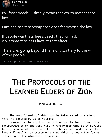
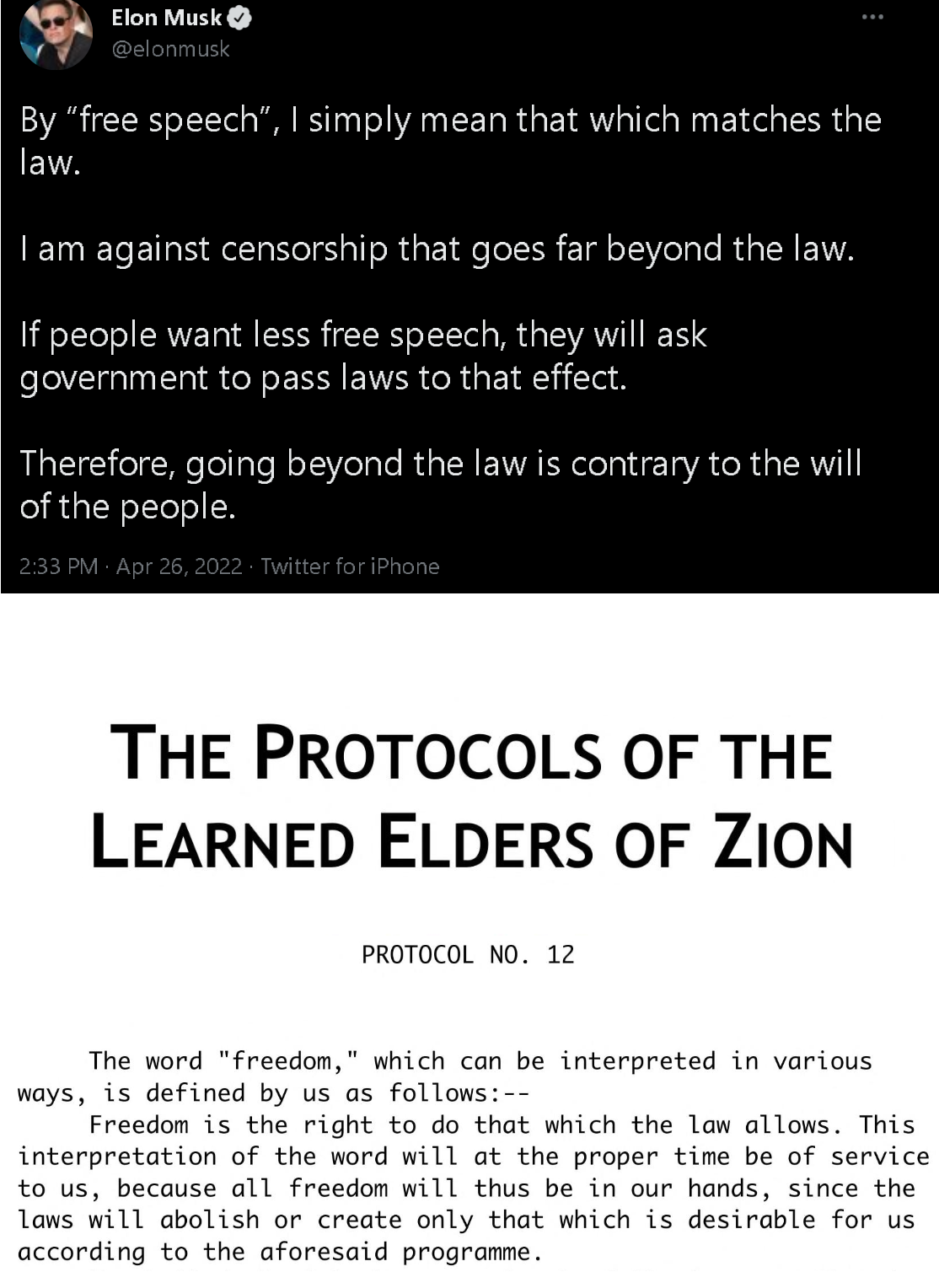
Let’s have a little reality check on Emmanuel Macron, shall we?
He is an ex-employee of the Rothschild investment bank. In 2016 he announced he was running for President as leader of a political party that was less than a year old. He had never even run for office of any kind before, let alone won.
Nevertheless, his “movement” stormed over the established political parties and he won the presidency.
This year, despite Covid and lockdowns and eighteen months of yellow vest protests, he’s still expected to win a second term. (And he did!)
Does any of that really make sense?
https://off-guardian.org/2022/04/24/this-week-in-the-new-normal-28/
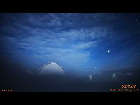
This week I discovered these films made by English conspiracy researcher Unpopular Opinion in 2020. I watched them all over the past week and I highly recommend them (all bitchute links):
No, nuclear weapons aren't real. I know, i know, you think it's ridiculous on the face of it.
Here's a nice video from the 50's showcasing an atomic bomb detonation. They had to fake everything and show a load of gibberish because they didn't have anything real to show you. Quite obvious in retrospect. Fake town being destroyed = no actual detonation + soldiers deployed way too close to ground zero with no casualties = no atomic detonation.
Following on from the previous video, here I look at the Trinity bomb test of 1945.
Continuing the nuclear hoax analysis, we move onto the inadequacies of the gun type fission bomb design and an overview of American firebombing of Japan.
Continuing the Atomic Hoax analysis, we look at Hiroshima & Nagasaki.
A continuation of my series on "Nuclear Weapons are fictional" - this looks at the Operation Crossroads Bikini Atoll tests by the US and the Soviet and UK nuclear bomb projects post-WW2. Contains sarcasm and the comical farce of international superpowers caught blatantly lying.
Final video in the "nukes are fake" series, we look at the bandwagon jumpers of France, China, India, Pakistan and North Korea. Prepare for some truly awful state propaganda.
